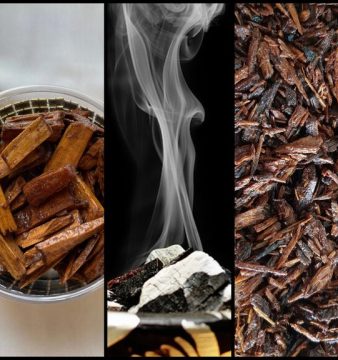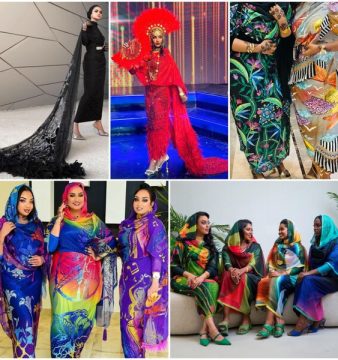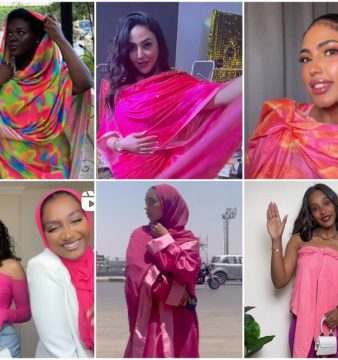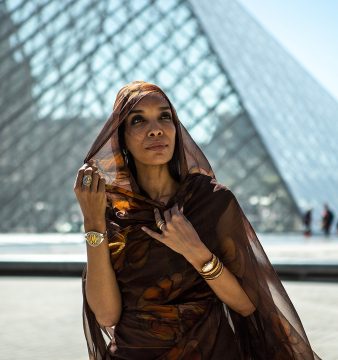Introducing Sudaniya Organics
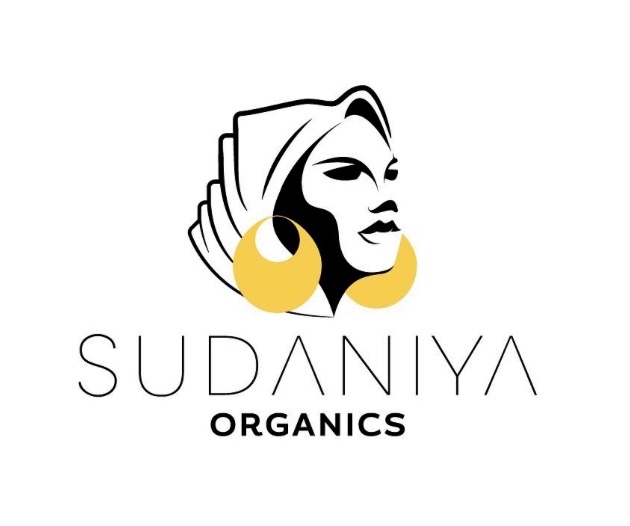
Unknown to most, Sudan has many natural beauty regiments, which many Sudanese women use and rely on a daily basis to maintain and enhance their beauty. Whether its for their body, face, skin, and hair, Sudanese women use various organic or natural beauty treatments that have become tradition as they have been passed down for decades.
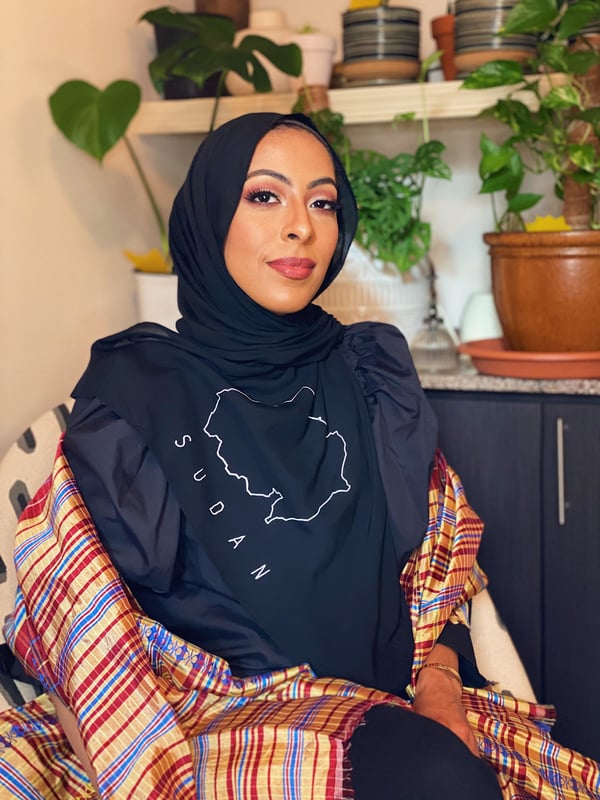
Bringing these products to the world is 31-year-old US-based epidemiologist Nada Osman, who founded Sudaniya Organics in 2020, offering Sudanese beauty products, which are 100% organic, and phthalate, sulfate, and parabens free. Her products include three facial beauty oils: Nafeesa, Jara, and Khadeeja; two facials mists: Blue Nile and White Nile; Karkar-ish Hair Butter; three Khomra perfumes: Muna, Hanaa, and Azza; Sudanese Bukhoor; and Izzelden Beard Oil.
According to Sudaniya Organics, a portion of every sale will be donated to a different organisation or charity every month, which work on empowering communities in the US and in Africa. The products are available in the US, the UK, Canada, Saudi Arabia, Qatar and the UAE.
500 Words Magazine interviews Nada Osman to learn more about Sudaniya Organics and how it’s modernising and globalising the much-loved Sudanese beauty products.
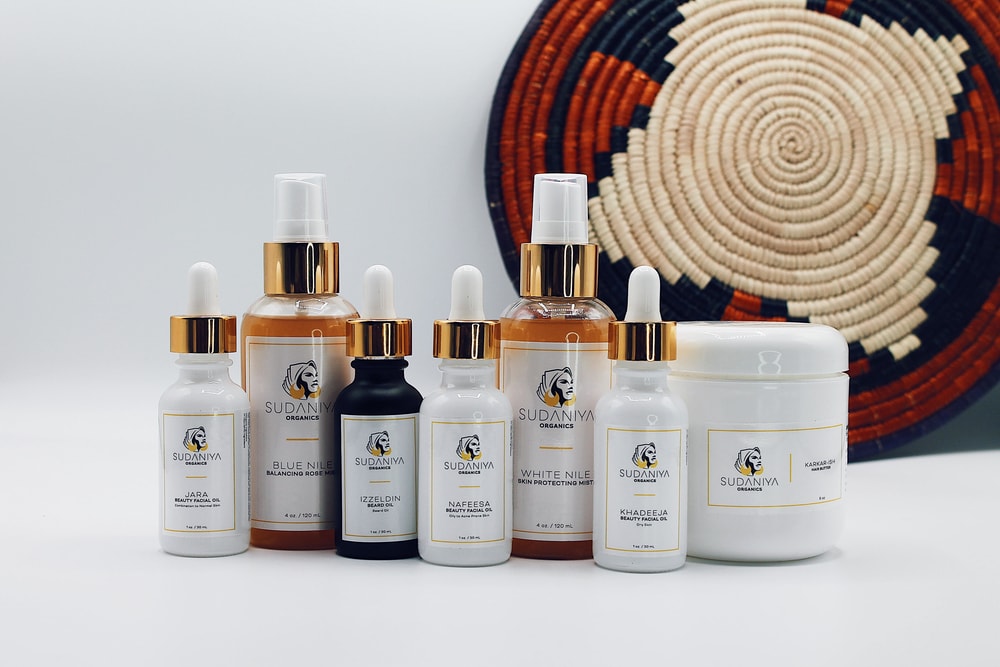
Tell us about yourself, and your personal and educational background.
From a very early age, I’ve always had many interests. I’ve always been interested in biology and anatomy but also had artistic interests like fashion, interior design, and a small obsession with skincare. I knew I wanted to have a career where I am able to help people in Sudan. I ended up learning about public health in high school and immediately knew that is what I wanted to do. I studied Community Health in undergrad and minored in Communication. I ended up pursuing my master’s degree after I had my first son, Laith, in Public Health with a concentration in Epidemiology.
When did you establish Sudaniya Organics and what inspired you to establish it?
I began making my own skincare products many years ago. I wanted to attain a healthier lifestyle, with less toxins. During my pregnancy with my second baby, Obai, I began eating clean, but then realised what about my skincare and all the toxins I’m introducing to my body that way? At the time, clean skincare was not as prevalent as it is today, so I just had to make my own. Eventually, I was making my own skincare products for myself and my friends. Years later, I was finally convinced to start my own company where I can share my non-toxic products with everyone. Growing up Sudanese was a big part of what pushed me into making my own products. I grew up seeing my mom always mixing oils and making hair masks. I also grew up using homemade Karkar. I wanted my company to not only benefit those who choose clean beauty, but also introduce them to this rich Sudanese culture that I had the privilege of growing up into. I also had to include a charity aspect to it by donating a portion of every sale to a different chosen charity every month.
What do you think makes Sudanese beauty products unique?
What makes Sudanese beauty products so unique are the ingredients used in them. Skincare is a big part of Sudanese culture and Sudanese women have managed to make great skincare products from everyday ingredients. Our beauty products are so simple yet so beneficial.
It’s quite unique to find Sudanese beauty brands providing facial oils and mists. Tell us more about your facial oils and mists, and what inspired you to launch these products.
Facials oils are what started my journey of creating skincare products. I think many women tend to overlook the benefits of oil for their skin. I also would love to keep women away from bleaching their skin and love their skin just the way it is. Our beauty is that Sudanese women come in all different shades and I think that is what makes Sudan so unique.
The mists are made with myrrh, which women in Sudan have been using for hundreds of years. It is one of the many beauty secrets that Sudanese women possess.
*Myrrh is a reddish-brown dried dum-resin sap that comes out of cuts in the bark of trees that are members of the Commiphora species – native to northeastern Africa and southwest Asia. It is often used as a fragrance, to flavour food products, and for its potential health benefits.
One of your products is Karkar Hair Butter. What do you think makes Karkar special for hair?
Growing up, my mom would always make jars of Karkar for us. I HATED it so much. Little did I know the many benefits that it holds. Karkar is another example of where Sudanese women were able to take everyday items that they had in the kitchen and make magic. Karkar moisturises, nourishes, and heals. It is truly magic in a jar. For Sudaniya Organics, I changed the things that I hated about Karkar, and added my own twist to keep the benefits, but also modernise it a bit.
*Karkar oil is a mixture of mainly sesame oil, honey wax and animal fat that is heated to blend well to make the dense oil and a perfume is then added so that it smells nice because it’s bad-smelling in nature. Used in many African countries on the hair and scalp, it is said to make hair thicker and stronger.
How did you learn to make the recipes for these products?
I came up with the recipe for the oils myself. As for the White Nile mist, I learned that recipe from my aunt in Khartoum. I learned the original Karkar recipe from my mom. Finally, the Khomra and Bukhoor, I learned the recipe from my mom as well, who makes them with me, which is my favourite part.
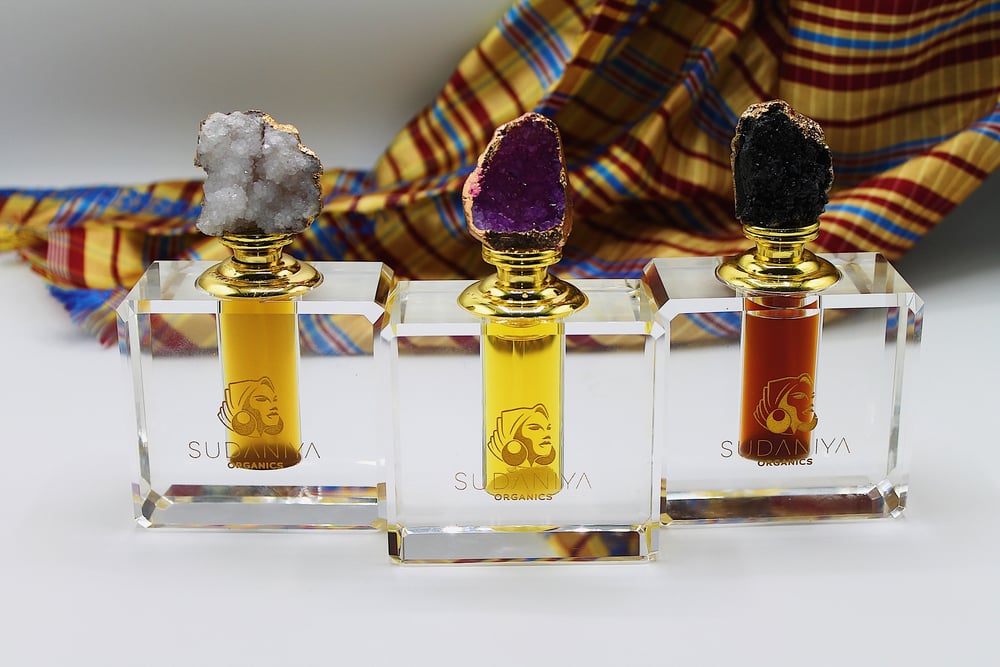
Tell us more about your clients and who you’re targeting. Do you wish to gain non-Sudanese clients as well?
Thanks to the world of social media, I am able to introduce the entire world to our beautiful culture through my Sudaniya Organics products. Many of my clients are actually non-Sudanese, but love the products. I also got so much support from my Sudanese community, which I appreciate always. Sudanese women in the US have appreciated me selling the homemade Bukhoor and Khomra, since we don’t have many options here.
What’s in the future for Sudaniya Organics?
When I first started Sudaniya Organics, I did not think that seven months later, I would be adding this many new products, but here I am and I am so grateful. I would love to continue to embrace my culture and show its beauty to the world one product at a time.
For more information, visit sudaniyaorganics.com, or find Sudaniya Organics on social media: Instagram @sudaniyaorganics and Facebook @sudaniya.organics.

